Hazards Around Your Home
Household Hazardous Waste
Automotive Chemicals
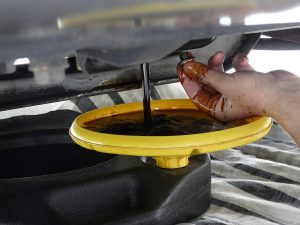 Despite the fact that many of us encounter automotive chemicals on a regular basis, these materials do pose a significant risk to our environment if they are not disposed of properly. Keeping these materials out of our water supply is critical. One gallon of motor oil can contaminate 1 million gallons of fresh water. Dumping used motor oil on the ground or down storm drains can have devastating effects and should never be done.
Despite the fact that many of us encounter automotive chemicals on a regular basis, these materials do pose a significant risk to our environment if they are not disposed of properly. Keeping these materials out of our water supply is critical. One gallon of motor oil can contaminate 1 million gallons of fresh water. Dumping used motor oil on the ground or down storm drains can have devastating effects and should never be done.
Fortunately, recycling programs for materials such as used motor oil, oil filters, antifreeze, transmission fluid, lubricants, waxes, etc. are common around Indiana and the proper handling of these substances is convenient in most communities. In fact, many local and national auto service centers and auto parts stores will readily accept used motor oil from the public free of charge. Stores such as Walmart, AutoZone, Jiffy Lube and others offer such services. Please call ahead for details as each program may be a bit different.
Additional recycling and disposal options for automotive chemicals are likely available via the solid waste management district in your area.
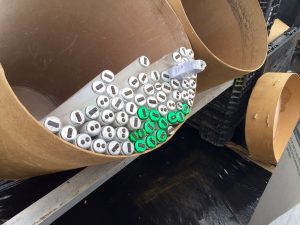 The phrase “mad as a hatter” has been around for hundreds of years. Have you ever wondered where the phrase originated? In the 19th Century, hat makers would often be mentally unstable, exhibit personality changes, suffer from tremors of the hands and feet and weep for little or no reason. Why did they act so strangely? They were suffering from mercury poisoning. Mercury nitrate was used in the 1800s as part of the felting process. Hat makers or hatters were commonly exposed to mercury on a daily basis and it dramatically affected their nervous systems.
The phrase “mad as a hatter” has been around for hundreds of years. Have you ever wondered where the phrase originated? In the 19th Century, hat makers would often be mentally unstable, exhibit personality changes, suffer from tremors of the hands and feet and weep for little or no reason. Why did they act so strangely? They were suffering from mercury poisoning. Mercury nitrate was used in the 1800s as part of the felting process. Hat makers or hatters were commonly exposed to mercury on a daily basis and it dramatically affected their nervous systems.
While the use of mercury is much more closely regulated now, it is still used in many of the items we commonly use at home or at work. Since mercury is a liquid, it can be easily vaporized and contaminate the air we breathe or it can quickly slip down a drain and contaminate our water system. So, the proper handling and disposal of mercury-containing items like old-style thermometers, thermostats, fluorescent light bulbs and some batteries is critical to protecting human and environmental health.
Contact your local solid waste management district to learn more about mercury disposal programs in your area. More information regarding mercury, including mercury cleanup guidelines, can be found at the Indiana Department of Environmental Management’s website.
Batteries
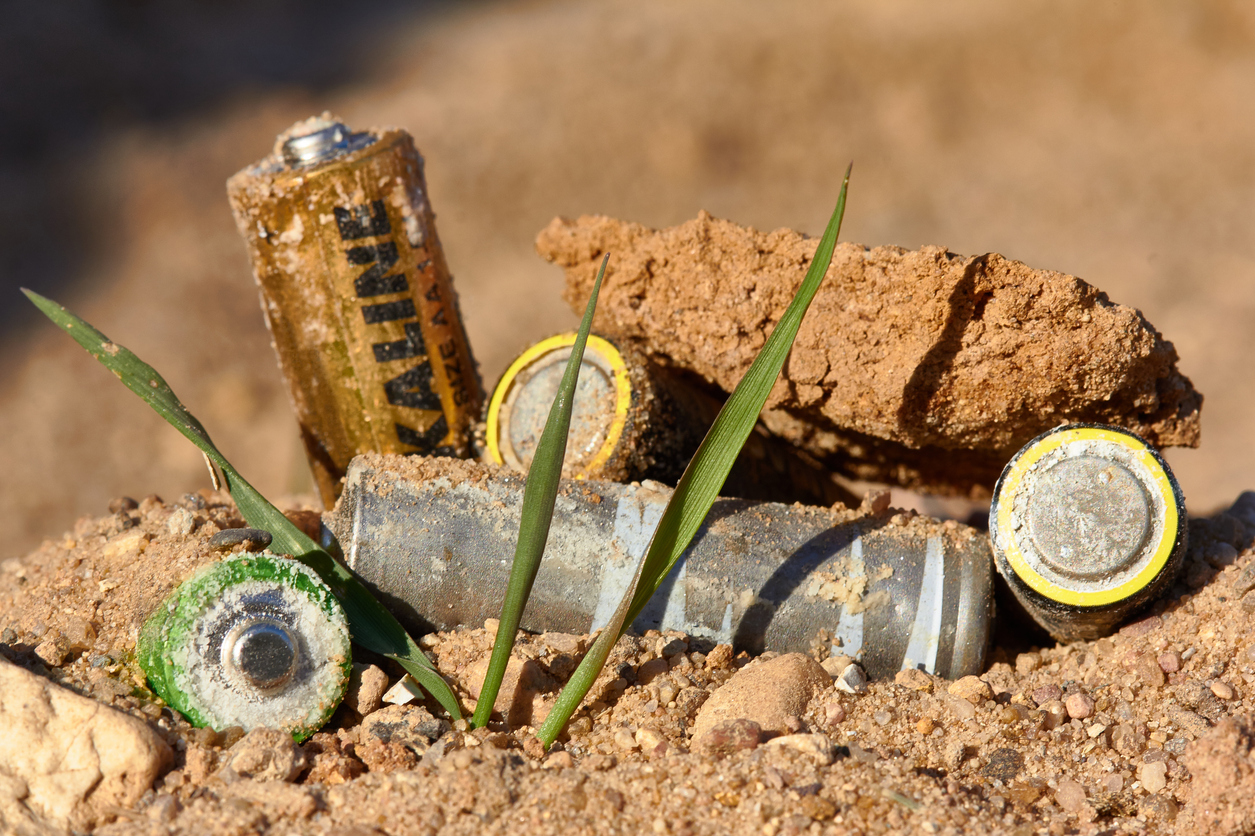 The proper handling and disposal of batteries can be a very confusing issue. There are many types—alkaline, carbon-zinc, lithium, nickel-cadmium, nickel metal hydride, button cell and lead-based. Fortunately, there are many different programs and approaches across Indiana and the nation related to the handling, disposal and recycling of batteries.
The proper handling and disposal of batteries can be a very confusing issue. There are many types—alkaline, carbon-zinc, lithium, nickel-cadmium, nickel metal hydride, button cell and lead-based. Fortunately, there are many different programs and approaches across Indiana and the nation related to the handling, disposal and recycling of batteries.
There are standard rules and recycling programs for rechargeable and lead-based (automotive) batteries and retailers that sell certain those types of batteries are generally required to accept them from the public for recycling regardless of where the batteries were purchased. So, most every large retailer (Walmart, Target, Home Depot, Lowes, Kmart, Sears and others) will accept the type or types of batteries they sell (rechargeable, lead-based or both). It’s always a good idea to verify a store’s participation and details of that store’s program prior to arriving with batteries to recycle, so call the store directly ahead of time.
Additionally, you can always contact your local solid waste management district for more information on programs in your community.
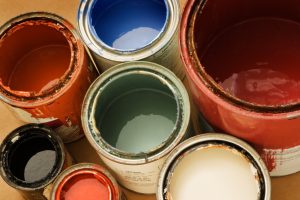 It accumulates in cabinets, garages, sheds and under sinks. We end up buying too much of it so we hold onto it “just in case.” It’s paint. Various colors, sizes, sheens, finishes and hues and it all just sits there until we decide it’s time to get rid of it…but now what do we do with it? Well, that depends…
It accumulates in cabinets, garages, sheds and under sinks. We end up buying too much of it so we hold onto it “just in case.” It’s paint. Various colors, sizes, sheens, finishes and hues and it all just sits there until we decide it’s time to get rid of it…but now what do we do with it? Well, that depends…
The proper disposal of paint and paint products depends on the chemicals used to manufacture them. For instance, latex paint is a water-based substance and as such, does not require special disposal. Once latex paint is hardened or dried out, it can be placed in the normal household trash. Contact your solid waste management district to learn how to identify, harden and dispose of latex paint in your area.
Oil-based paints, varnishes, stains, epoxies, spray paints, etc. do need to be disposed of via a household hazardous waste program. These types of products, like many other materials considered household hazardous waste will have words like: caution, warning, danger, flammable, corrosive, toxic or poison on their labels. These items are prohibited from being disposed of in our municipal solid waste landfills and incinerators and should never be burned, poured down drains or concealed in the household trash for disposal. Contact your local solid waste management district to learn more about household hazardous waste disposal options in your community.
Household Medical Wastes
 For years many believed that the best way to dispose of unwanted medicines was to flush them down the toilet. Research now shows that trace amounts of those same drugs are detectable in our freshwater sources (creeks, rivers, lakes and reservoirs). The processes used to treat the wastewater generated at our homes and businesses are not capable of removing some of the chemicals used to manufacture today’s pharmaceuticals.
For years many believed that the best way to dispose of unwanted medicines was to flush them down the toilet. Research now shows that trace amounts of those same drugs are detectable in our freshwater sources (creeks, rivers, lakes and reservoirs). The processes used to treat the wastewater generated at our homes and businesses are not capable of removing some of the chemicals used to manufacture today’s pharmaceuticals.
Stockpiles of unwanted medicines pose other threats as well. Medications are the most common poison exposure category in the United States and the unsecured storage or disposal of drugs is a significant source of accidental poisonings. Additionally, senior citizens routinely become confused or self-prescribe medicines when many years of old, outdated medications remain in their homes.
Stockpiled medications may also be targeted by those looking to abuse them. In such cases, homeowners or occupants can unwittingly add to the drug abuse problem.
A number of unwanted medicines disposal options exist. Many of Indiana’s solid waste management districts offer ongoing or periodic collection events for residents. Contact your local solid waste district for information about programs in your community. If a collection program is not offered in your area, instead of flushing unwanted medications or washing them down a drain, you are encouraged to render the medicines unpalatable (crush pills and mix with coffee grounds, absorb liquid medicines in cat litter, etc.) and hide the medicines in your household trash. Sending these medicines to a landfill for disposal is a much better option than introducing them to our water system.
Click here for more information from the Indiana Department of Environmental Management about the proper disposal of unwanted medicines.
Medical Sharps
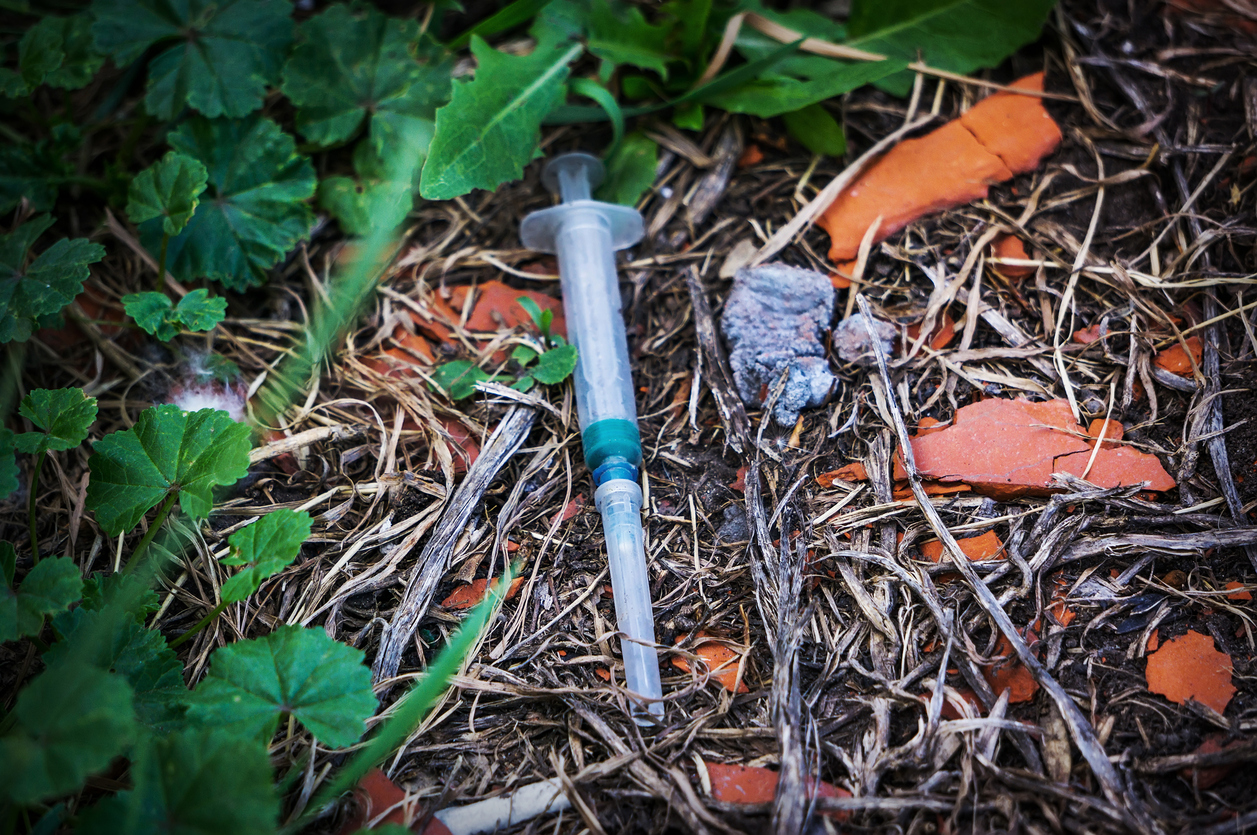 Hypodermic needles, lancets and other such medical devices pose serious health threats when not disposed of properly. Needle sticks can transmit serious diseases such as HIV and hepatitis. Solid waste workers are most at risk when medical sharps are mixed with typical household trash.
Hypodermic needles, lancets and other such medical devices pose serious health threats when not disposed of properly. Needle sticks can transmit serious diseases such as HIV and hepatitis. Solid waste workers are most at risk when medical sharps are mixed with typical household trash.
Even needles placed in sturdy containers for disposal are a threat when those containers break open inside a compactor truck on a trash pick-up route. Unfortunately, it is not uncommon for plastic or steel containers full of medical sharps to be sent for recycling despite the risk those containers pose to workers moving and sorting those materials. No can, jug or jar that contains sharps should ever be placed for recycling pick up. In addition, waste water treatment plant personnel are at risk when sharps are flushed down toilets as those devices must be removed as part of the water treatment process.
A number of disposal options for medical sharps exist. Many communities have local programs available to help residents responsibly dispose of sharps they generate in their homes. Contact your local solid waste district for more information about collection programs in your area.
Mail back programs are also available. For a fee, residents will be provided with a sharps container to use in their homes. Once the container is full, it can be sealed and mailed back to the company for disposal. Some medical offices, pharmacies and health departments may also offer sharps disposal programs. Lastly, some manufacturers offer needle destruction devices that melt, sever and/or burn sharps, rendering them safe for disposal.
PROBLEM WASTES
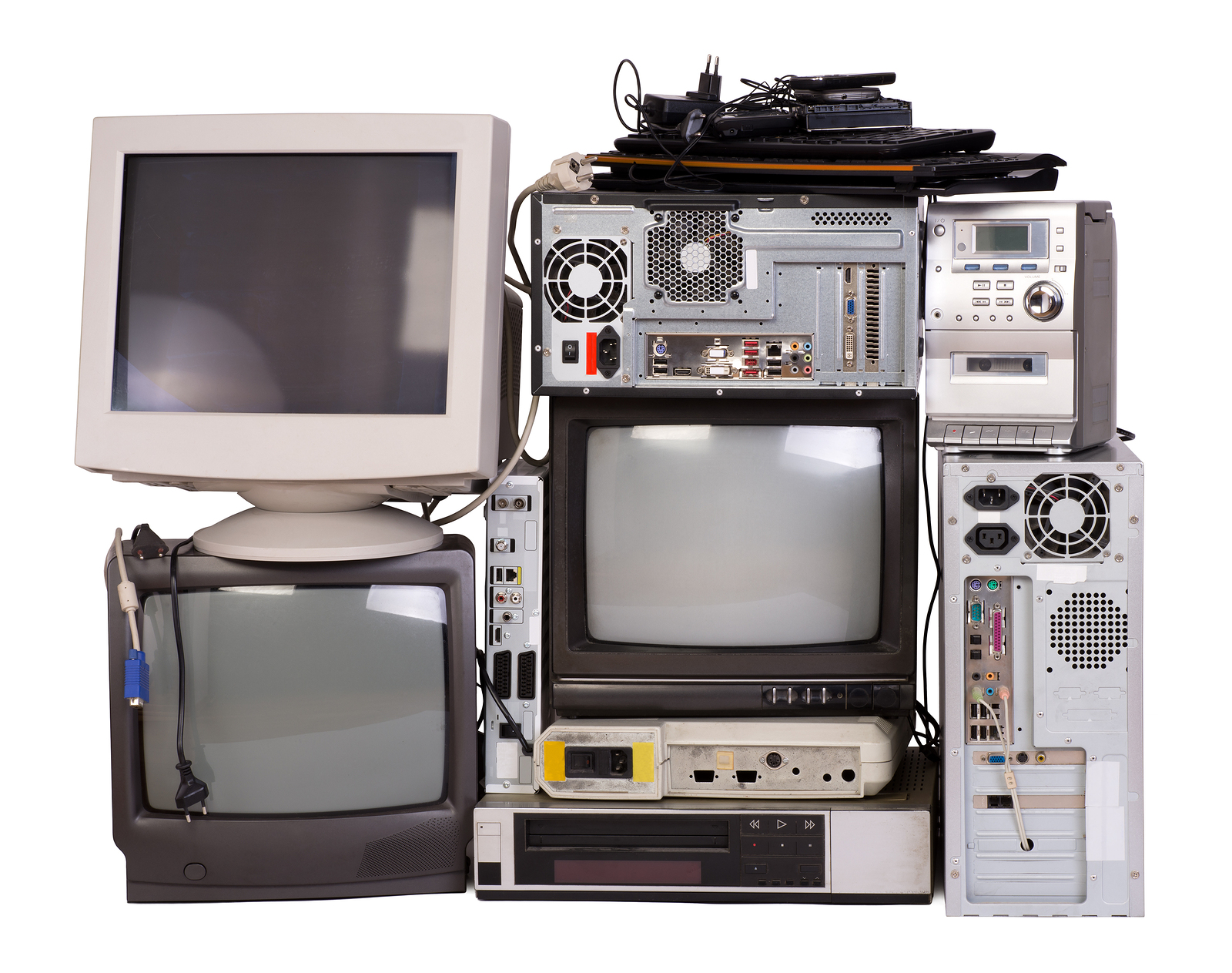 Electronic waste is currently the fastest growing waste stream. Over 1.2 million electronic devices are thrown away in Indiana each year. Electronics such as televisions, computer components and cell phones contain five toxic materials: lead, mercury, cadmium, hexavalent chromium and brominated flame retardants. When in typical use, these dangerous chemicals do not pose any risk. But, when electronic devices are disposed of, the toxic materials can create serious health and environmental risks. Specifically, exposure to these dangerous materials can negatively impact the immune system, the reproductive system, heart function, fetal and child development, kidney function, the central nervous system and the respiratory system.
Electronic waste is currently the fastest growing waste stream. Over 1.2 million electronic devices are thrown away in Indiana each year. Electronics such as televisions, computer components and cell phones contain five toxic materials: lead, mercury, cadmium, hexavalent chromium and brominated flame retardants. When in typical use, these dangerous chemicals do not pose any risk. But, when electronic devices are disposed of, the toxic materials can create serious health and environmental risks. Specifically, exposure to these dangerous materials can negatively impact the immune system, the reproductive system, heart function, fetal and child development, kidney function, the central nervous system and the respiratory system.
When electronics and computers are properly reused and recycled the risks to human health and the environment are avoided. Additionally, the valuable metals and plastic used to manufacture the devices are saved as well as much of the energy used to initially mine and produce those components.
National, state and local electronics recycling programs currently exist and more are being developed. Contact your local solid waste district for more information about collection programs in your area. In addition, a number of electronics manufacturers and retailers offer reuse and recycling programs. Some of those companies are: Dell, HP, Apple, Lenovo, IBM, Sony and Best Buy.
More information about electronics recycling is available at the Indiana Department of Environmental Management’s website.
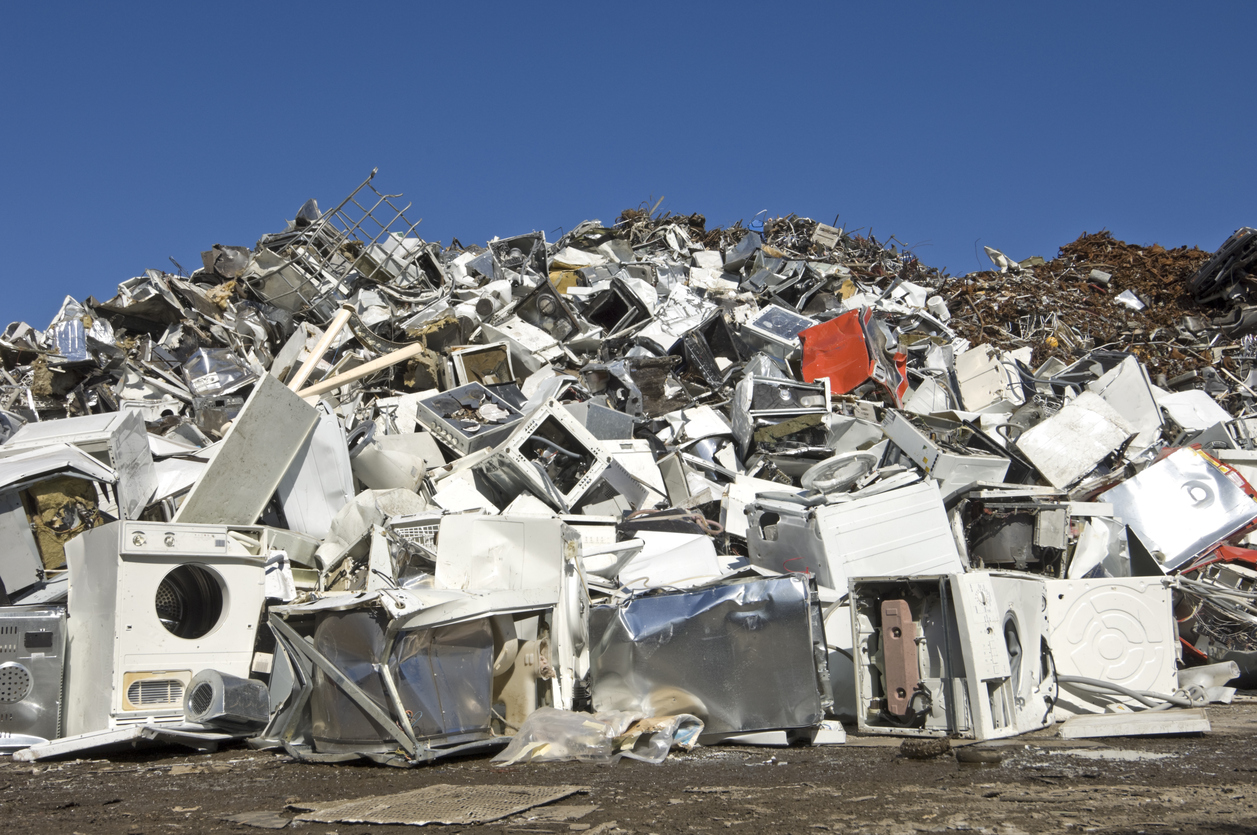 According to the Association of Home Appliance Manufacturers, discarded appliances are second only to old automobiles as a source of recycled materials, particularly steel. Many appliances also contain other valuable metals like aluminum and copper that can be recycled as well as plastics and refrigerants. Those refrigerants, chlorofluorocarbons (CFCs) and hydrochlorofluorocarbons (HCFCs) specifically, can deplete the Earth’s ozone layer if not handled properly. So it is important that unwanted appliances, especially those containing refrigerants, are properly recycled.
According to the Association of Home Appliance Manufacturers, discarded appliances are second only to old automobiles as a source of recycled materials, particularly steel. Many appliances also contain other valuable metals like aluminum and copper that can be recycled as well as plastics and refrigerants. Those refrigerants, chlorofluorocarbons (CFCs) and hydrochlorofluorocarbons (HCFCs) specifically, can deplete the Earth’s ozone layer if not handled properly. So it is important that unwanted appliances, especially those containing refrigerants, are properly recycled.
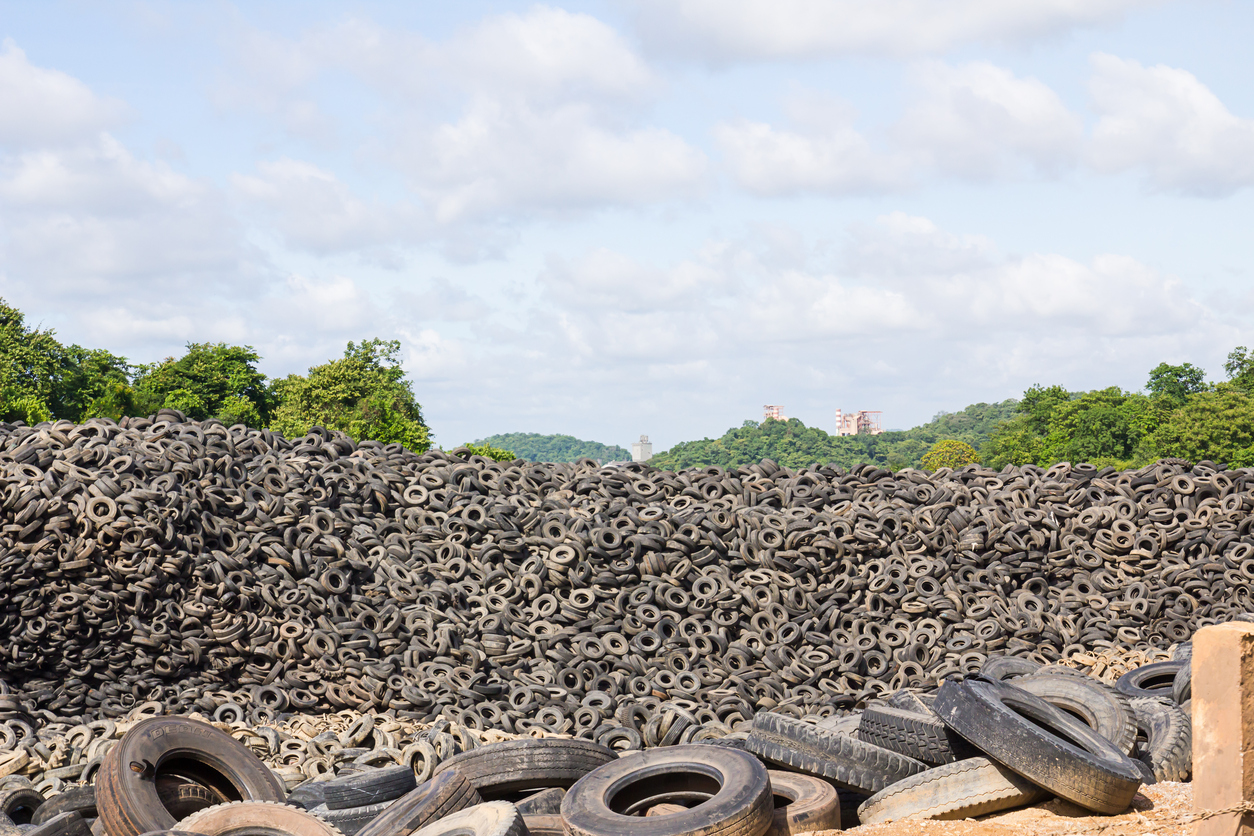 It is estimated that Hoosiers generate about seven million scrap tires each year. When not disposed of properly, these waste tires often become mosquito-breeding habitats and pose a significant fire hazard.
It is estimated that Hoosiers generate about seven million scrap tires each year. When not disposed of properly, these waste tires often become mosquito-breeding habitats and pose a significant fire hazard.
When left outside, waste tires collect and hold rain water. That warm, stagnant, nutrient-rich water creates an ideal breeding ground for many types of disease-carrying mosquitoes. Over the course of a breeding season, one tire can generate thousands of new mosquitoes!
Large piles of waste tires that ignite pose a difficult and expensive problem for firefighters. Some large tire fires that have occurred across the country have burned for months because emergency responders were unable to control them. Burning tires generate a great deal of pollution. The thick dark smoke from even one burning tire contains carbon monoxide, sulfur dioxide, benzene and butadiene.
Fortunately, many tire recycling programs exist to help manage scrap tires. All retailers in Indiana that sell new tires are required to accept tires from individuals that purchase tires at that establishment. Many tire retailers are also willing to accept additional tires from the public for a small fee. When purchasing new tires, Hoosiers should make the choice to allow the retailer to retain and recycle their old tires.
Contact the solid waste management district in your area to find our more about tire recycling in your community.
